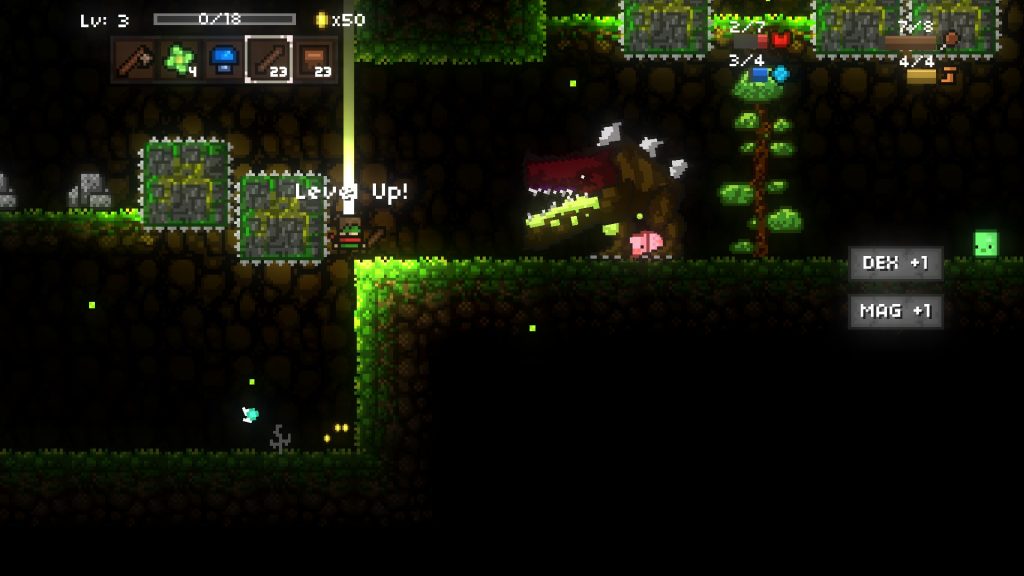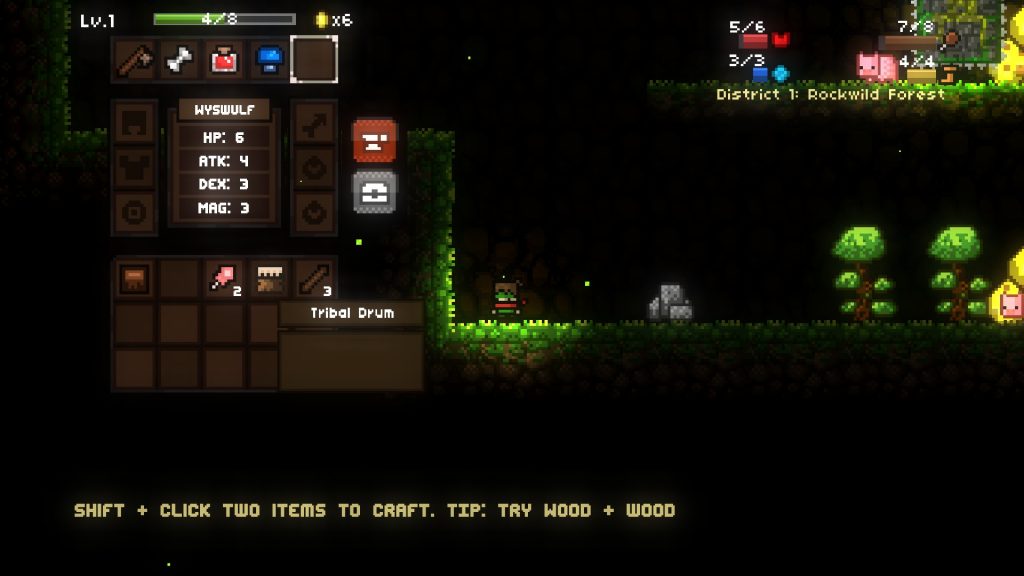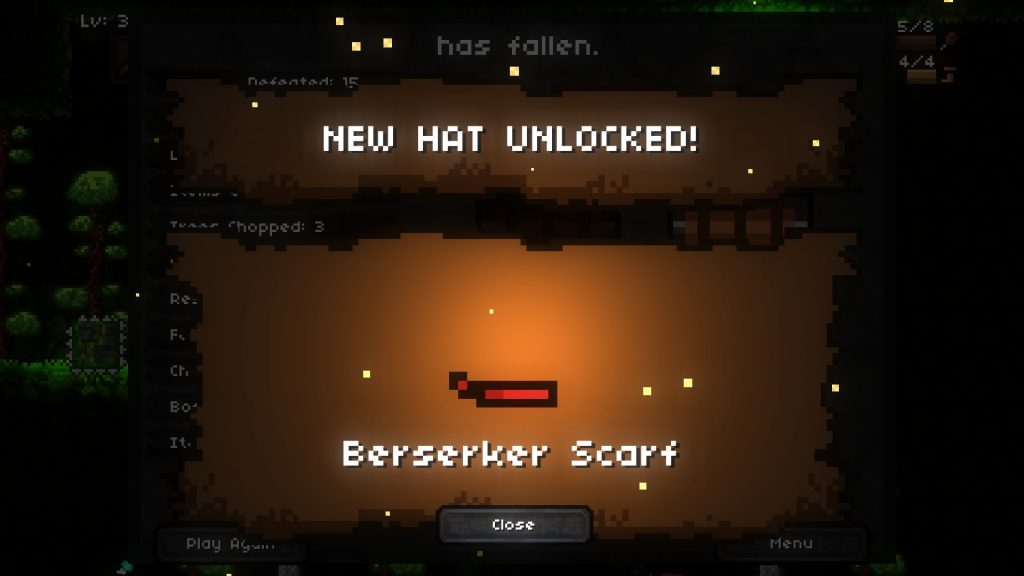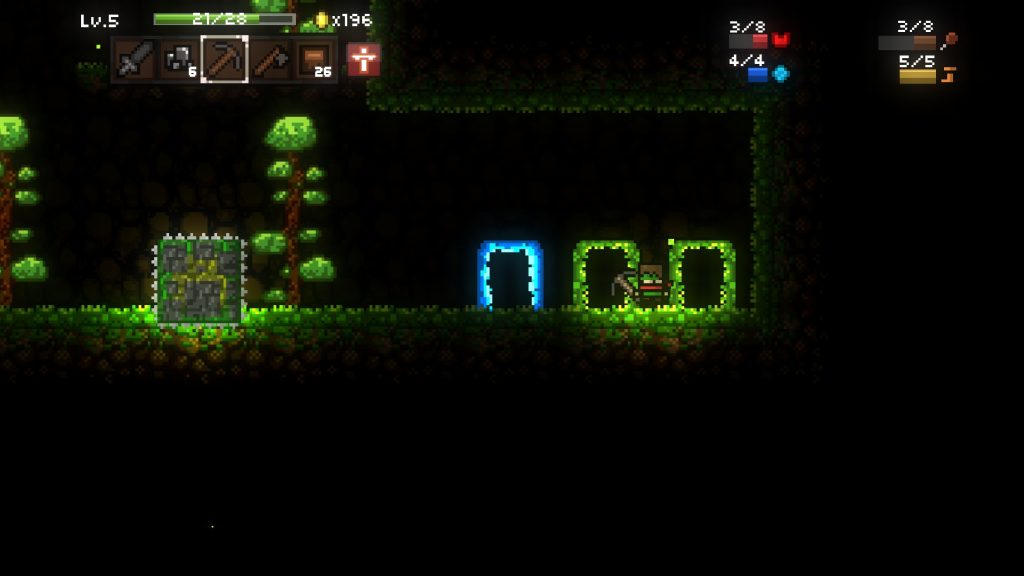Sometimes it’s difficult to tell if a crafting game is good or not before you buy it. Ever since the exploding popularity of a certain java-based cube mining game, there has been a splurge of copycat titles desperately trying to ride its coattails of success–whether their game was good or not. Now don’t get me wrong, crafting in video games was a thing long before Minecraft came to the scene–but Minecraft’s viral acclaim created a heavy hand that guided how many of us viewed the nature of crafting in games. After many poor imitations, eventually Terraria would enter the scene, being a strong enough game to stand on its own alongside a world where Minecraft existed–and for several years following its release, the game-designing industry had yet another crafting title that they could mimic, much to the disappointment of many gamers who would go on to purchase these equally cheap knockoffs. Now, it’s not fair to say that Minecraft and Terraria have exclusive rights to 3-D and 2-D crafting games exclusively. After all, certain things about each game naturally lend themselves to logical conclusions that result from the design of a realistic way to obtain the most basic of crafting materials–wood and stone. To say that any other game that has you gathering both these resources is a knockoff of Minecraft or Terraria would be untrue. The problem lies in the simple question of game design: “Are you gathering wood and stones because that is the most logical and satisfying method that the designers structured their game around, or are you gathering wood and stones because that’s the way Minecraft and Terraria did it?” Thus the trial today, is finding a way to sort out the good from the bad–the wheat from the chaff–in a genre where so much refuse is readily available. Magicite, mercifully, genially, is actually good.
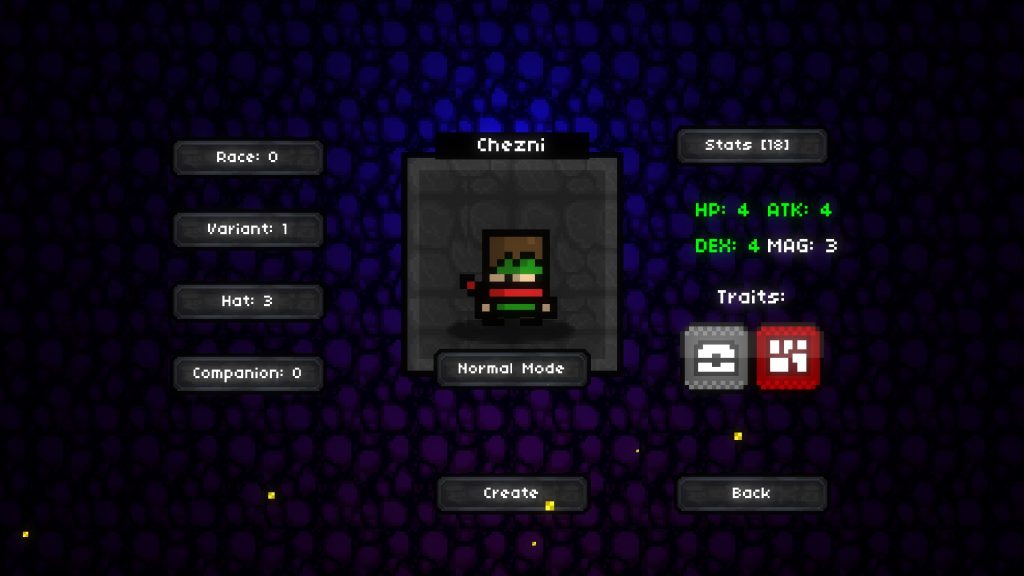
To say that this game is unlike Terraria, would be false. You have an axe. You cut down trees to make more axes. You craft a sword. You kill things and hit rocks with pickaxes to get better swords. This is where many of the similarities depart however, as Magicite is actually a scored roguelike, whereupon all your actions are graded and rewarded at the inevitable end of your life, accordingly. The game is incredibly easy to learn but rewards increased player skill. My first life lasted 17 seconds. I got trampled by a boar. Now I can make it about 10 minutes in, which doesn’t sound like a lot, but makes me feel like a damn hero. Even though the game is difficult, it’s the good kind of difficult. Each time you die you understand that it was a consequence of your own actions. It’s easy to understand why you died, and what you could have probably done to avoid it. With each death, you can dive right back in better prepared–not because your character is a higher level, but because you as a player are wiser to the world that you encounter.
In spite of being a roguelike, crafting is a staple of the gameplay–and much to my awe, Magicite handles crafting in a manner that is sweet and simple like Terraria while still remaining distinct. Simply by mushing two items together, you can check to see if they create a new item. It sounds too simple at first, but it works really well–it makes crafting quick (which you’ll want since every time you die you’ll need to re-craft all your items) but contains enough possibilities that the excitement of discovering a new recipe is always around the corner. I still have no idea what a “Tribal Drum” does, but my curiosity compels me even now to find out. I suppose I could just look up the recipes, but I haven’t felt a need to yet; I feel it would ruin my fun.
So far the mechanics have been as simple as just swinging a stick or a sword or if I’m lucky shooting a bow, but there’s enough customization to allow different approaches to your adventure. For starters, your core 4 stats are randomized and can be pushed into your favor if you’re willing to reroll them a few times. You also start off with the ability to choose 2 traits–they aren’t profound, but can give you an edge in one area or another. Later on as you level up, you can choose one of three skill paths to travel down–and if you are deemed to be worthy by the achievement gods, you might just get a piece of equipment, a race or companion after you die that you can take with you the next time you set out. All these simple customization options create enough of a choice that it’s fun to tailor your character to your wishes but they aren’t so complicated that they drag you down.
I look forward to getting deeper into the world of Magicite. So far, the farthest I’ve managed to get is a town with NPCs willing to trade with me. I should have taken a leaf out of Link’s book though and left the chickens alone. Killing a few of the town fowl summoned a Giant chicken that ended my day. Regrettably I wasn’t able to quite get a screenshot of that one. Oh well; your imagination may suit you better than a picture would. All in all, Magicite goes in Tier 1 resolutely; it’s a great pickup for those who love quick character creation, crafting, side-scrolling and roguelikes.
